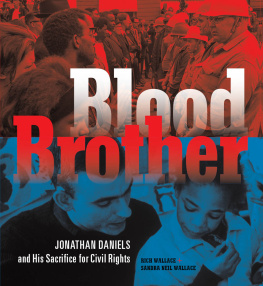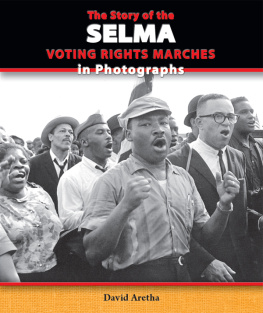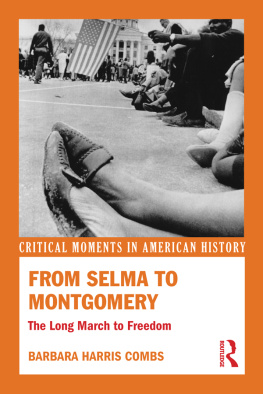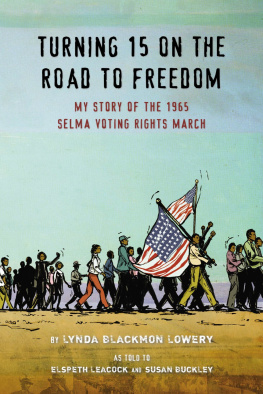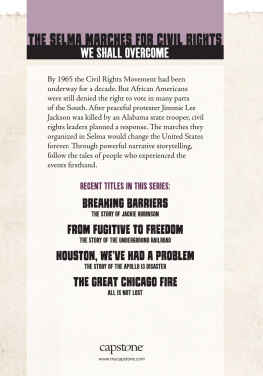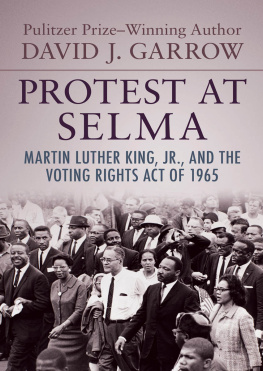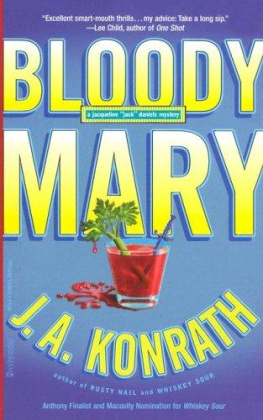

Text copyright 2016 by Rich Wallace and Sandra Neil Wallace All rights reserved.
For information about permission to reproduce selections from this book, please contact .
Calkins Creek
An Imprint of Highlights
815 Church Street
Honesdale, Pennsylvania 18431
Printed in China
ISBN: 978-1-62979-094-7 (hc)
ISBN: 978-1-62979-748-9 (e-book)
Library of Congress Control Number: 2016932211
First e-book edition, 2016
H1.1
Designed by Bill Anton | Service Station
Production by Sue Cole Titles set in Stymie BT Extra Bold Condensed Text set in ITC Century Book
For those who marched in 1965 and those who march today
Be jubilant, my feet!
From The Battle Hymn of the Republic
by Julia Ward Howe


Contents
I t was their sixth day in hell, otherwise known as the Hayneville jail. Toilets overflowed. Plates of greasy beans rotted on the floor, and the sheriff refused to take any of it away.
HAYNEVILLE, ALABAMA
August 20, 1965
and we arent allowed to bathe, wrote Jonathan Myrick Daniels, dripping with sweat in the hottest week of the summer. There were no fans. Filthy mattresses covered the steel bunks. The water supply to the sinks was frequently shut off.
Yet the jailed protesters were singing. Crammed into four steaming cells, the twenty young peopleall but two of them black and most of them teenagerssang hopeful freedom songs and hymns. Jonathan sang loud and clear, working hard to raise the spirits of his fellow prisoners. The singing was strong enough to be heard three blocks away, increasing the tension in an already riled-up Alabama town.
Oh, Freedom
Oh, Freedom over me
And before Ill be a slave
Ill be buried in my grave,
And go home to my Lord
And be free.
Jonathan was afraid, but he tried to hide it. Hed been warned not to get involved in the protest that landed the group in jaila peaceful demonstration to call attention to the unfair treatment of black residents at local stores. for things like this, a priest told him. Theyre looking for people like you.
his own race.
Suddenly the singing stopped. A jailer pulled out his keys and unlocked the cells. Youre free to go, he told the prisoners.
Sidestepping hundreds of paper plates piled high in the hallway reeking of rotting food, the prisoners walked out of jail. But as their eyes adjusted to the sunlight, a wave of fear and suspicion eclipsed their relief. They hadnt been bailed out. Jonathans friend Stokely Carmichaela leader of the civil rights organization that was working to raise bail moneywas nowhere in sight.
. They couldnt help thinking about the civil rights workers murdered in Mississippi the summer before. Those three men had been released from jail unexpectedly, too, then shot to death in the middle of the night.
But what could happen in broad daylight on a busy Friday afternoon in Haynevilles town square? Yet it was eerily quiet, the streets deserted.
Deciding that the horrific jail conditions felt safer than walking through Hayneville, Jonathan and the group pleaded to stay on jail property. A deputy sheriff forced them onto the street.
SOMETHING BAD WAS ABOUT TO HAPPEN. RUBY FELT SURE OF IT: OF JAIL SPECIFICALLY FOR SOMEONE TO BE KILLED .
Crossing Boundaries

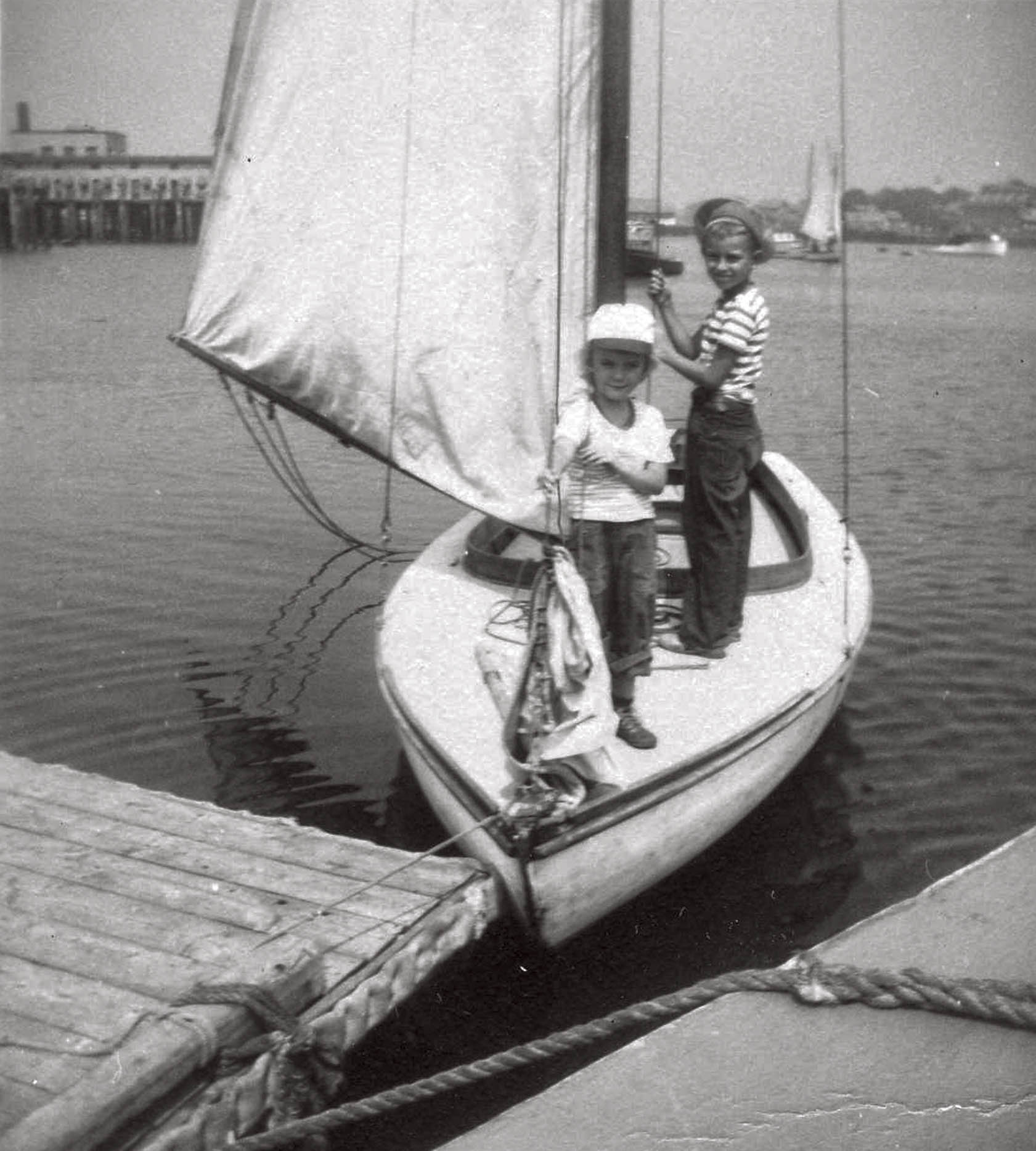
Jonathan and his sister, Emily, are ready to sail on Spofford Lake during a family trip in New Hampshire.
J onathan Daniels was a rebel, but he was also a deep thinker. As a kid in Keene, New Hampshire, he had a way of discovering secret places where he could sneak away to daydream.
BORN
March 20, 1939
THE FIRST OF 9,651 DAYS
Like that crawl space under his familys house on Summer Street. When he removed the loose bricks from a wall in the basement and grabbed hold of an overhead pipe, Jonathan could swing his feet up and make his way into the space under the dining room. It was cool and dark and smelled like dirtthe perfect meeting place for his friends.
First, it took some work. Jonathan and his friend Bob Perry spent weeks carting out dirt to enlarge the area. and knees and dug out a bigger space, Bob recalled. Eventually it was eight feet wide and long. They brought in a few old chairs and made a bench with a board and some concrete blocks. But they could dig only at certain times.
when his mother wouldnt be aware, Bob said.
With the space ready, Jonathan assembled his friends in the underground clubhouse. He called his group the Royal Knights of the Order of the Skull and Bones Society. They gathered after school to talk about which girls caught their attention, before turning to deeper subjects. Would the United States new hydrogen bomb blow up the world? What about the American soldiers fighting in Korea? Jonathan wrote an ominous story about a soldier who came home from the Korean War to find that his family had been killed in a fire.
DEFIANT AND SNEAKY
Jonathans friends knew that he had strict rules to live by. As the son of the towns busiest doctor and a status-conscious mother, he was expected to never bend those rules. Use your best manners at dinner and choose the right silverware. Do your homework and your chores. Always be on time.
Keeping track of time was easy in downtown Keene back in the 1940s and 50s. Train whistles blared at regular intervals, and the Congregational church bell chimed on the hour in the town square.
The difficult part was sneaking around those rules. Clever and resourceful, Jonathan discovered how. By the time he reached junior high school in 1951, twelve-year-old Jonathan Daniels was a firebrand. Hed been sneaky. Because Jonathan was constantly grounded, his time with his friends was cut short.
Jonathan was also a bit of a ham. He earned major rolesa wicked magician and Tom Sawyerin shows put on by the Keene Childrens Theater and performed in the school and church choirs and the band. He loved to escape into books, which he said unlocked , fantastic dreams of myself as a great hero.
He liked to hunker down in the crawl space and light a Camel cigarettewhich he kept hidden in an old Band-Aid tinand listen as his friends described the elaborate ceremonies of their churches. On Sundays, Jonathan, his parents, and his younger sister, Emily, attended Keenes First Congregational Church, but he found the services too plain and boring.
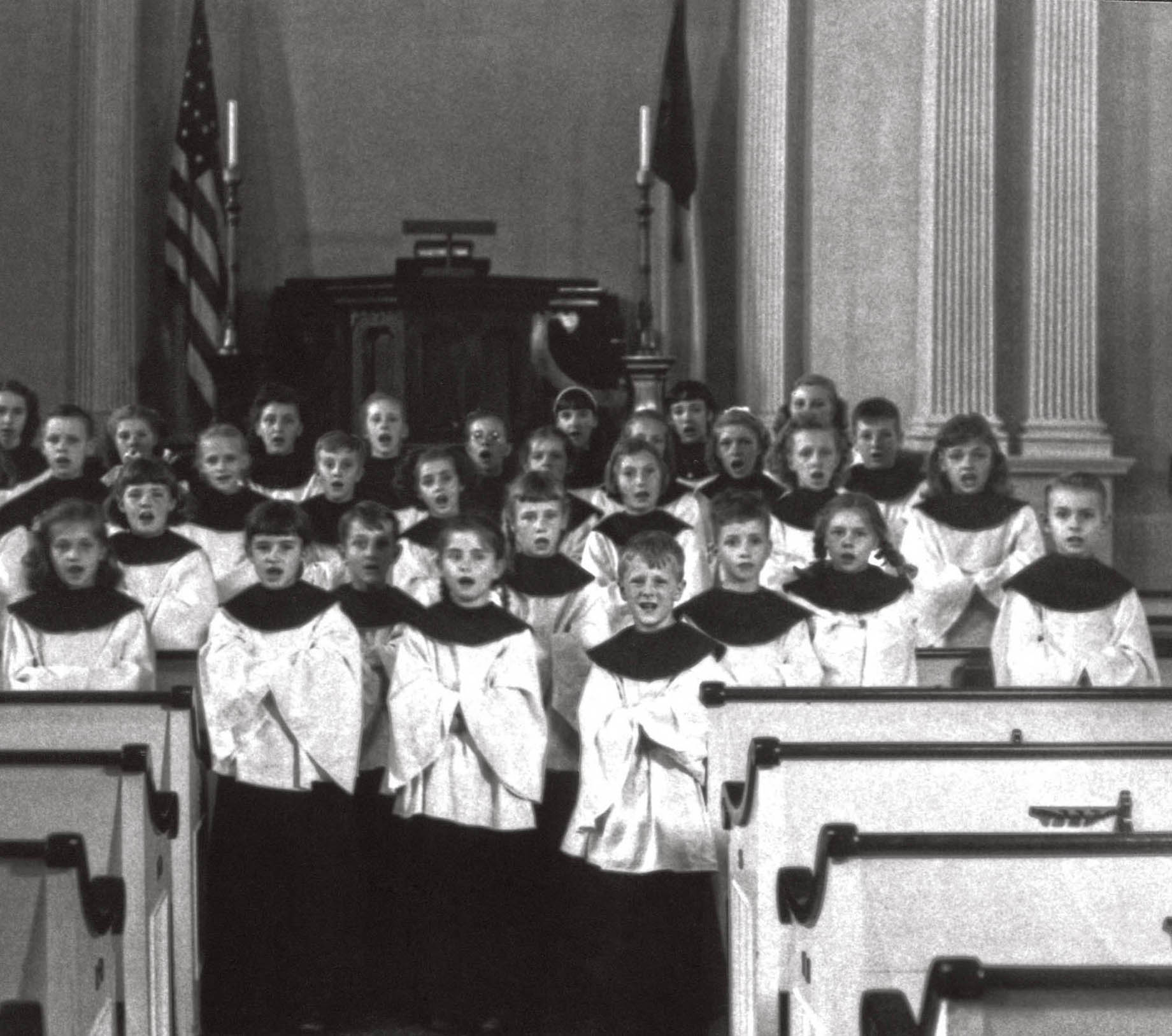
Jonathan (at the far right) joined the First Congregational Church youth choir when he was seven years old.
and you dont chant and you dont have vestments and all that sort of thing, a friend observed. So Jonathan made his own church. He built an altar in the crawl space and preached sermons to his friends, burning incense and sipping wine hed swiped from his parents.
Next page
